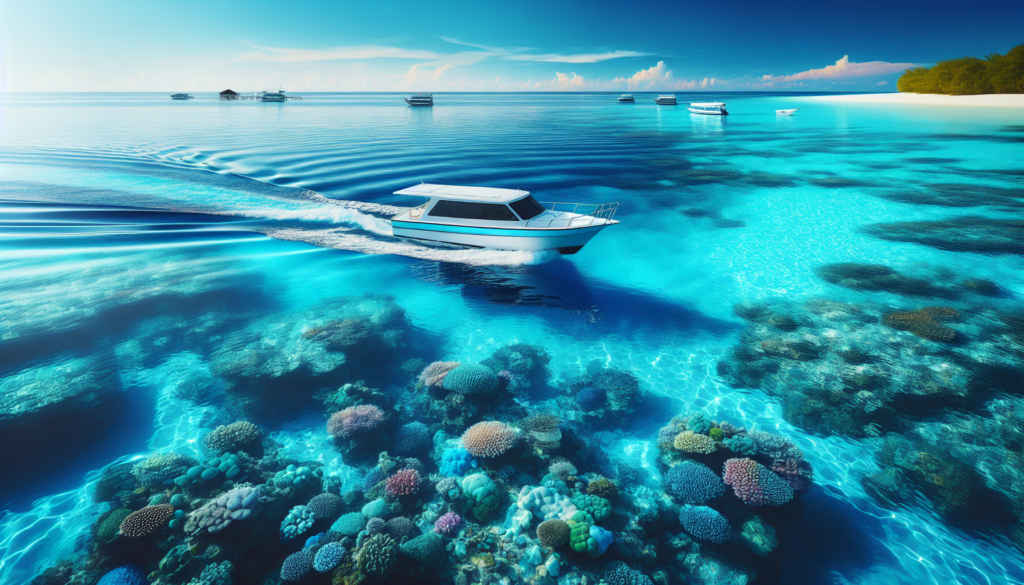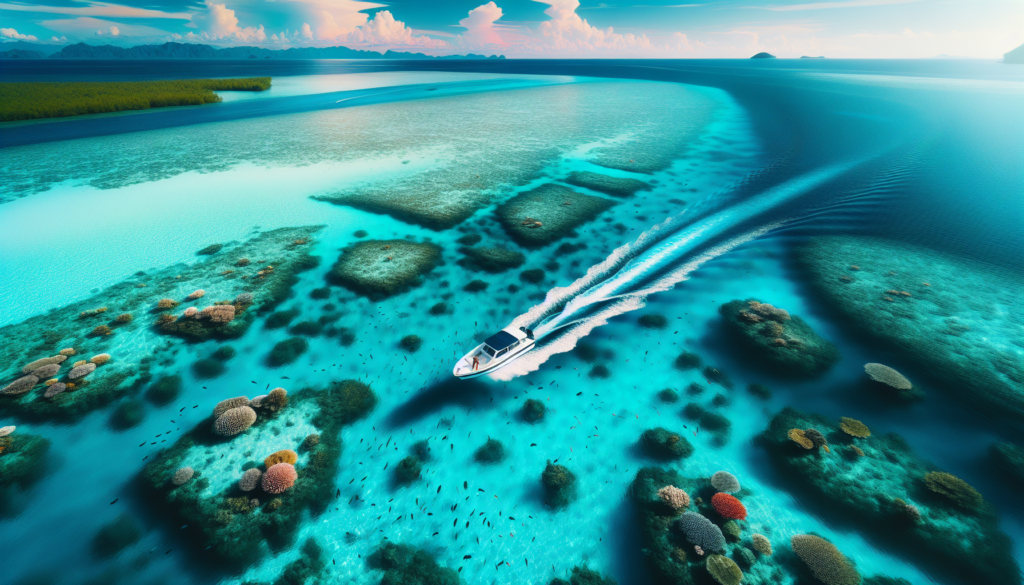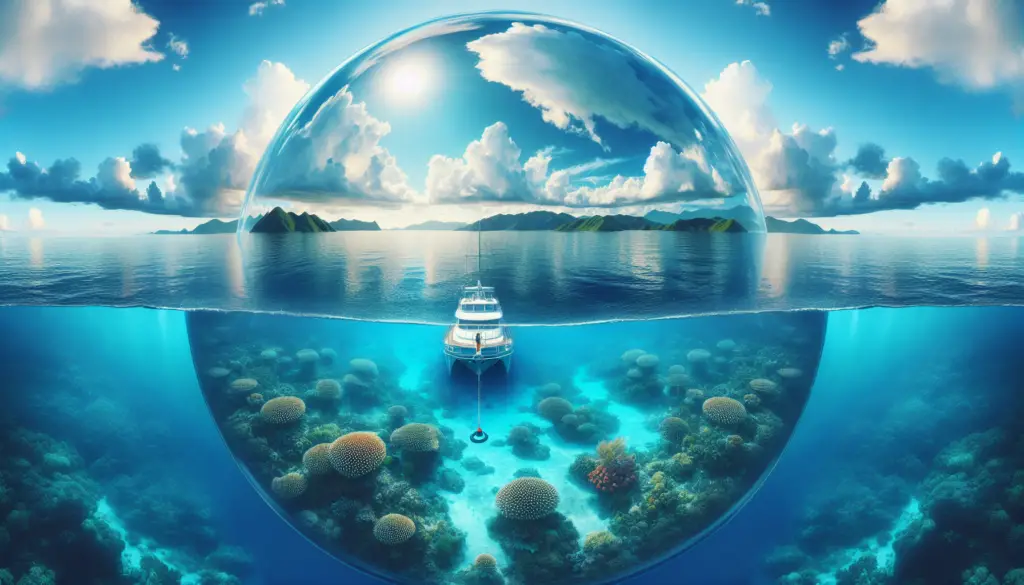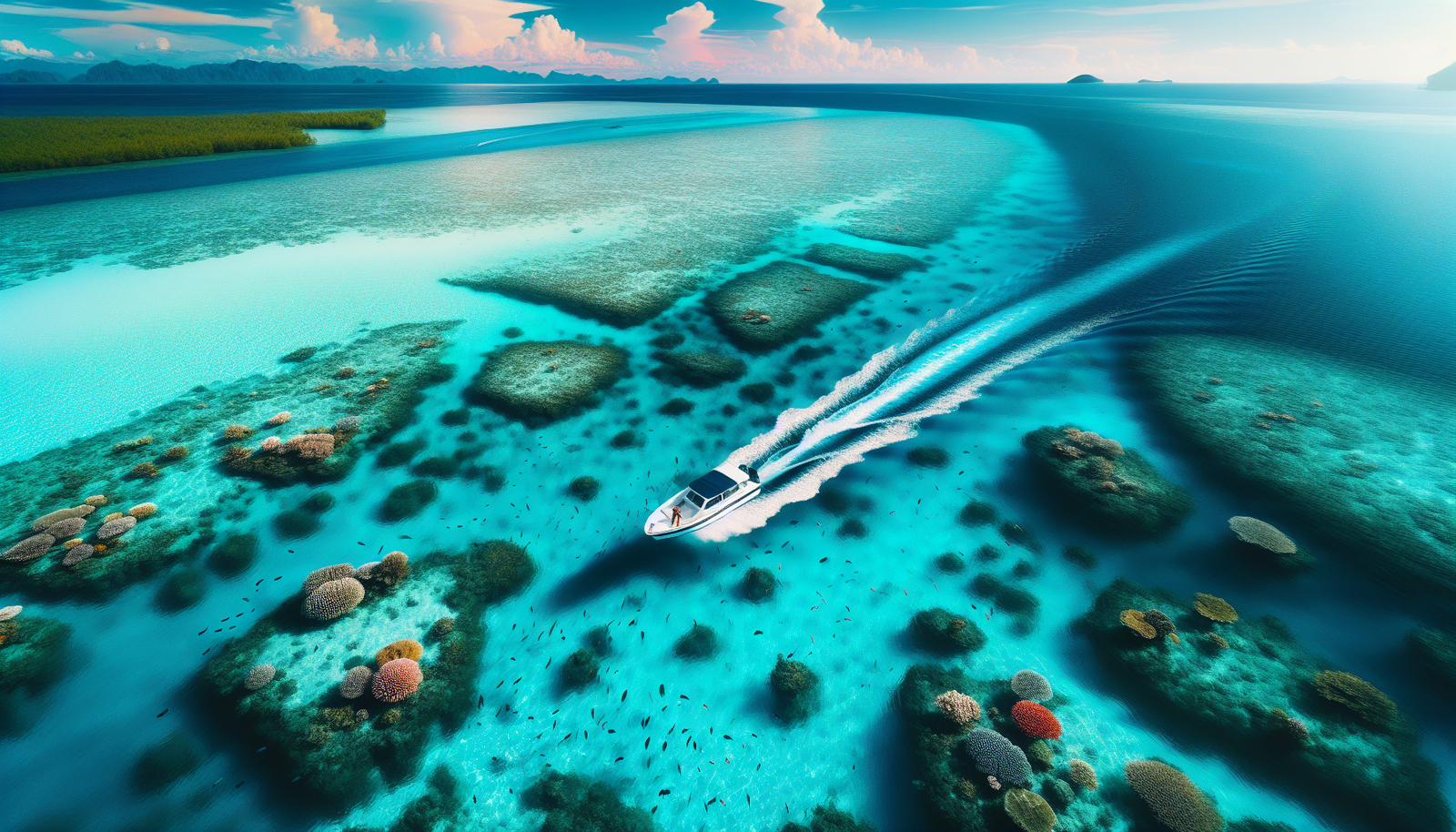Imagine spending a beautiful day sailing on crystal clear waters, the wind in your hair and the sun on your face; the perfect picture of serenity, right? Unfortunately, this picturesque day can quickly be ruined by the sight of trash floating by or oil slicks on the water’s surface. Your love for boating doesn’t have to come at the expense of the environment. Equipped with the right tools and knowledge, you can protect the very nature that fuels your passion. “Best Practices For maintaining a clean boating environment” not only equips you with practical tips and guidelines to ensure your boat rides are eco-friendly, it also reiterates the importance of caring for our water bodies. So, hold on tight, as your journey to responsible boating begins.

Understanding the Importance of a Clean Boating Environment
Practicing clean boating isn’t just about maintaining a tidy ship; it’s about ensuring the health and well-being of our waterways, wildlife, and ourselves.
The impact on marine life
Clean boating is vital because it significantly impacts marine life——our friends under the sea! Pollution and waste from boats can harm marine species and disrupt the natural balance in their habitat. Disposal of rubbish or harmful substances can lead to chemical imbalances in water bodies. It’s important to remember that these water bodies are homes for various creatures; maintaining it clean is crucial to their survival.
Effects on the quality of water
Moreover, clean boating significantly impacts the quality of the waters we traverse. The more waste, pollutants, and invasive species we introduce into the water, the poorer its quality becomes. This degradation affects drinking water quality, habitats for aquatic life, recreational water spaces, and more.
Implications for human health
The water we pollute today may be the same water we end up drinking or bathing in tomorrow! Diseases like hepatitis, dysentery and other gastrointestinal issues can be contracted from polluted water bodies. Thus, it’s important to prioritize clean boating practices not just for the environment but for our health too.
Importance of boating etiquette for conservation
Lastly, maintaining clean boating etiquette is crucial for marine conservation. This involves actions like respecting no-wake zones, not trespassing on sensitive habitats, and keeping disturbance to wildlife at the minimum. Your actions onboard matter!
Minimizing Waste Production Onboard
The first step towards a cleaner boating environment is reducing waste production.
Limiting the use of disposables
Disposables like cutlery, wrap, bags, bottles, etc., can’t be recycled at sea and often end up polluting the water. Try switching to alternatives – carry refillable water bottles, consider cloth napkins, and invest in sturdy, reusable kitchenware.
Incorporating reusable items
Increase reliance on reusable items onboard. Carrying your supplies in reusable canvas bags or storing food in reusable containers can significantly reduce waste.
Effective waste segregation
Separate waste into recyclable, compostable, and non-recyclable items. This simplifies waste management onboard and also aids in proper disposal later.
Understanding and implementing a proper waste disposal protocol
Following regulations for waste disposal is crucial for clean boating. Be aware of the trash laws in your boating area and observe them consistently. Never dump trash at sea!

Maintaining Cleanliness Onboard
It’s not just about what goes overboard; cleanliness starts onboard!
Routine cleaning of boat surfaces
Ensure routine cleaning of boat surfaces. This not only maintains cleanliness but also avoids attracting pests and avoids their damaging effects.
Using eco-friendly cleaning agents
Avoid harsh chemicals; instead, choose eco-friendly cleaning agents. These cleaners often work as well as their chemical counterparts and are much kinder to water bodies.
Managing food and drink spillage
Prompt and proper cleanup of food/drink spillage prevents attracting pests and keeps the boat clean. Regular deep cleaning, especially in the galley, is important.
Proper storage and disposal of waste materials
Store waste properly onboard to prevent it from being accidentally or unintentionally discarded into the water. Plan for proper disposal when you reach the shore.
Fuel Handling and Efficient Usage
Fuel usage and handling play a huge role in maintaining a clean boating environment.
Strategies for fuel efficiency
Adopting strategies for fuel efficiency like maintaining correct tire pressure, ensuring routine maintenance, and avoiding excessive idling can significantly reduce the fuel consumption of your boat.
Proper handling and disposal of fuel and oil
handle fuel with care to prevent spills or leaks. Implement a strict oil management protocol, which includes proper storage, handling, and disposal of oil waste.
Leak detection and management
Regular inspection for leaks in the fuel system is important. Use oil absorbent pads or booms around your boat to contain and soak up accidental spills.
Adhering to regulations and guidelines for fuel handling
Comply with the local regulations and guidelines for fuel handling. This helps in preventing accidental spillage and leakage into the sea, which would have disastrous environmental implications.

Responsible Fishing Practices
Utilizing responsible fishing practices goes a long way in ensuring a clean boating environment.
Adherence to fishing regulations and seasonal restrictions
Compliance with fishing regulations like bag limits, size limits, and seasonal restrictions is crucial. This helps prevent overfishing and promotes sustainable use of marine resources.
Proper disposal of fishing gear and wastes
Discarded fishing gear can trap and harm marine life. Properly dispose of fishing gear and waste rather than discarding it overboard.
Using fish finders for sustainable fishing
Fish finders can help identify schools of fish, leading to fewer casts, less gas usage, and efficient fishing trips.
Catch and release practices
Catch-and-release fishing ensures the sustainability of fish populations, allowing you to enjoy the sport without significantly impacting the local fish community.
Managing Sewage and Blackwater
Proper management of sewage and blackwater is crucial to maintaining a clean boating environment.
Understanding the importance of proper sewage management
Sewage disposal into water bodies can lead to disease transmission and nutrient pollution. Proper sewage management protects both marine life and human health.
Installation and use of marine sanitation devices
Marine sanitation devices treat sewage to safe levels before it’s disposed into the sea. Investing in them is a key step toward clean boating.
Scheduled maintenance of sewage systems
Scheduled maintenance of sewage systems is critical to ensuring their proper functioning. Prevent leaks or spills into the sea by regularly inspecting and maintaining your onboard sewage system.
Blackwater disposal methods
Comply with regulations for blackwater disposal. Save your blackwater for pump-out stations instead of releasing it into the water.

Control of Hazardous Substances
Control of hazardous substances aboard your boat is another critical component of clean boating.
Identifying potential sources of hazardous substances
Understand and identify potential sources of hazardous substances on your boat. These may include cleaning agents, paints, antifreeze, and batteries.
Proper storage of hazardous materials
Securely store hazardous materials to prevent them from accidentally entering the marine environment.
Management and disposal of hazardous materials
Properly manage your hazardous materials. Use as needed, handle carefully, and dispose of them at appropriate facilities.
Dealing with spills or leaks
In case of a leak or spill, act promptly to prevent the substance from entering the waterway.
Respect for Protected Areas
Respecting protected marine spaces is an integral part of clean boating.
Understanding the importance of marine reserves
Marine reserves are critical for the conservation of marine life. Appreciate these special spaces and respect their role in ensuring the health and biodiversity of our oceans.
Awareness of boundaries and regulations
Stay informed about the boundaries of these protected areas. Adhere to the regulations that apply, like speed limits and no-fishing zones.
Maintaining low impact boating in these regions
Practice low-impact boating in these areas. Stay on marked channels, steer clear of sensitive habitats, and keep noise levels down.
Cooperating with local authorities and marine patrols
Cooperate with the local authorities and marine patrols governing these areas. Follow their directives promptly and responsibly.
Promoting the Clean Boater Mindset
Being a clean boater yourself is great, but inspiring others to do the same, even better!
Sharing knowledge and practices with fellow boaters
Share the knowledge you have on clean boating with other boaters. Have open dialogues about best practices and benefits of maintaining a clean marine environment.
Participation in clean-up drives
Participating in organized clean-up drives is a great way to keep the waterways clean and inspire others with your actions.
Supporting businesses that advocate for marine conservation
Support businesses that share your passion for marine conservation. This could be companies that produce eco-friendly boating products or local restaurants that only serve sustainably sourced seafood.
Establishing a culture of respect for the environment among boat crew
Ultimately, the key step towards clean boating is to establish a culture of respect for the environment among your boat crew. This involves fostering awareness and understanding of why a clean boating environment is so critical and encouraging consistent adherence to clean boating practices.
In conclusion, clean boating practices protect the quality of our water, the survival of our marine life, and ensure a safe and enjoyable boating environment for us. By adopting these best practices for maintaining a clean boating environment, you’re not only safeguarding the oceans but also paving the way for future generations to enjoy the beauty of our oceans. It’s time to step up and do our part. After all, the sea isn’t just for sailing – it’s for sustaining too!

